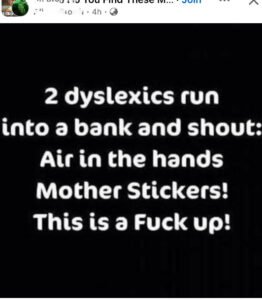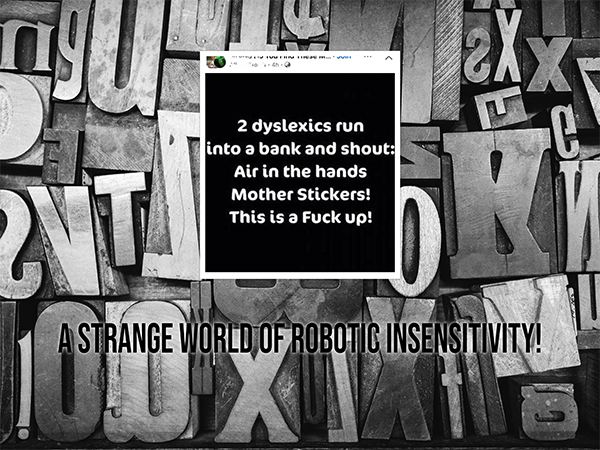Dyslexia, Ignorance, and the Echoes of a Facebook Post
In the 1990s, I taught in a residential school in a hill station in India. I had just completed my B. Ed in Calcutta. A new student joined in the middle of the year in Class 7. Her script was illegible; spellings were more like jumbled words; and her written sentences made no sense. I was surprised that the girl had reached Class 7! Anyway, I tried hard to help her spell and write better. However, she didn’t progress much. I had to tell her parents to consult experts, as she definitely had a learning disorder.
The point I want to make is that even though I had completed my B. Ed, I failed to identify the actual issue that troubled the girl. I wasn’t aware. I didn’t know that she had dyslexia. It took a ‘Taare Zameen Par‘ to show me some light. I understood her condition only after watching the movie. This was long after I had stopped teaching.
It took two more years, after my son was born, to learn more about the different types of special needs that plagued the world. A whole new world opened for me, my extended family, and friends. We accepted it with open arms.
But I wondered. I wondered why my B. Ed syllabus didn’t include practical lessons on special needs. It did have a section on Educational Psychology where the various conditions were superficially included. Reading a few lines about each condition didn’t help me much. This was one of the reasons why I couldn’t understand what my student suffered from and the remedial measures she needed. I hope the syllabus has changed since the 90s and has become more practical. I know for certain that schools (at least, private ones) have become more aware now and regularly hold workshops and awareness programmes for teachers and parents.
Given how much awareness has grown since my teaching stint, I would like to believe that people have become more sensitive and accepting towards those with special needs. When we were children, many of these affected children and adults were ridiculed by the people around us. Cracking jokes and bullying were rampant. In those days, that was ‘normal’. People with special abilities were ‘abnormal’, and consequently, they were excluded from social activities. Nowadays, with multiple awareness campaigns, films, and documentaries, people have become more accepting, and the stigma has lessened, to some degree, at least in the cities. That’s what I thought. I was mistaken.
A few days back, I came across this post on Facebook, supposedly a joke that garnered a lot of laugh emojis. Was the joke made in ignorance, or simply for likes, without a thought for whom it might hurt? Are they truly not aware? Or is it the age-old syndrome of not caring until it affects you and your immediate loved ones?

Joke on Dyslexia
I didn’t know how to react to the post – whether to be sad or angry. All I realised was that, for millions of people, those with special needs are still seen as a joke. These are people who have zero understanding of the difficulties that people with special abilities face. And it is for these same people that the difficulties become more pronounced and prolonged.
I still feel saddened by the fact that I couldn’t help my student due to my unawareness. And with all the knowledge and exposure at their fingertips, social media users of the AI era fail to be sensitive towards fellow human beings. Maybe, when we let machines guide our thinking, we risk becoming robotic ourselves – stripped of empathy, unaware of our insensitivity.
Collage on Photo Collage: Sravasti & Kyle Vaughner

